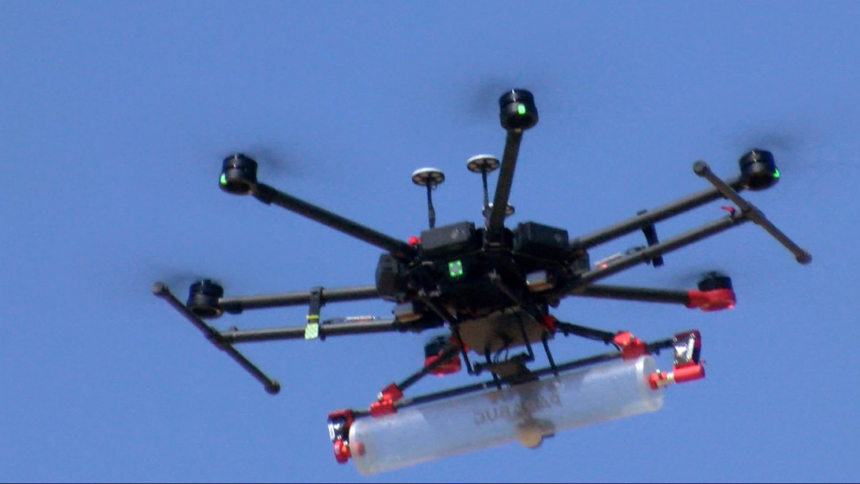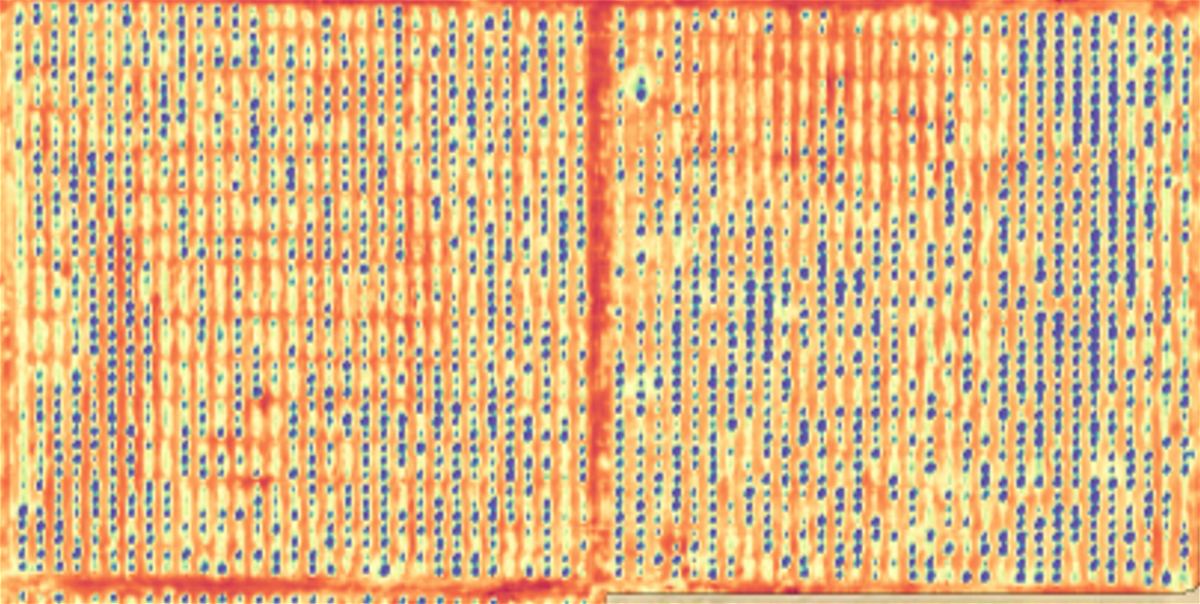Home Grown: Drones disperse insects to eat unwanted bugs

YUMA, Ariz. (KYMA, KECY) - Drones fly over agricultural fields to put out insects in order to get rid of any unwanted bugs.
Primarily, drones are used to detect crop stress, meaning an error in the growth of the crops. A sensor takes thousands of frames of non-visible light to detect the crop stress before the human eye can detect it.
Curtis Pate, an agronomist with Agtegrity says the drones fly in a lawnmower-like pattern to capture the imagery of the crops.

"It's showing us that something's different here. What is it? Is it a plugged irrigation line, is it salt, is it a disease, are there a heavy population of bugs there? So, anything can cause stress," Pate said. "We still have to go back with muddy boots and identify what's causing that anomaly."
If they detect there is a heavy population of bugs, they can use the drones to disperse good insects.
"We use beneficial insects such as Trichogramma wasps to kill worms, and we use lacewing to primarily eat aphids, but lacewing will eat just about anything," Pate explained.
The bugs are put out as eggs, and once they hatch, they are ready to consume bugs that can potentially destroy the crops.
The Federal Aviation Administration (FAA) has limitations on weight, drone height, and visual line of sight.
When drones are used to disperse water or chemicals to kill weeds, the maximum weight allowed by law is 55 pounds.
"On a spray operation, three gallons of water is all that you could possibly carry," Pate said.

He hopes the FAA will be more flexible with their restrictions in the next few years in order to operate drones more efficiently and use them to their fullest extent.
